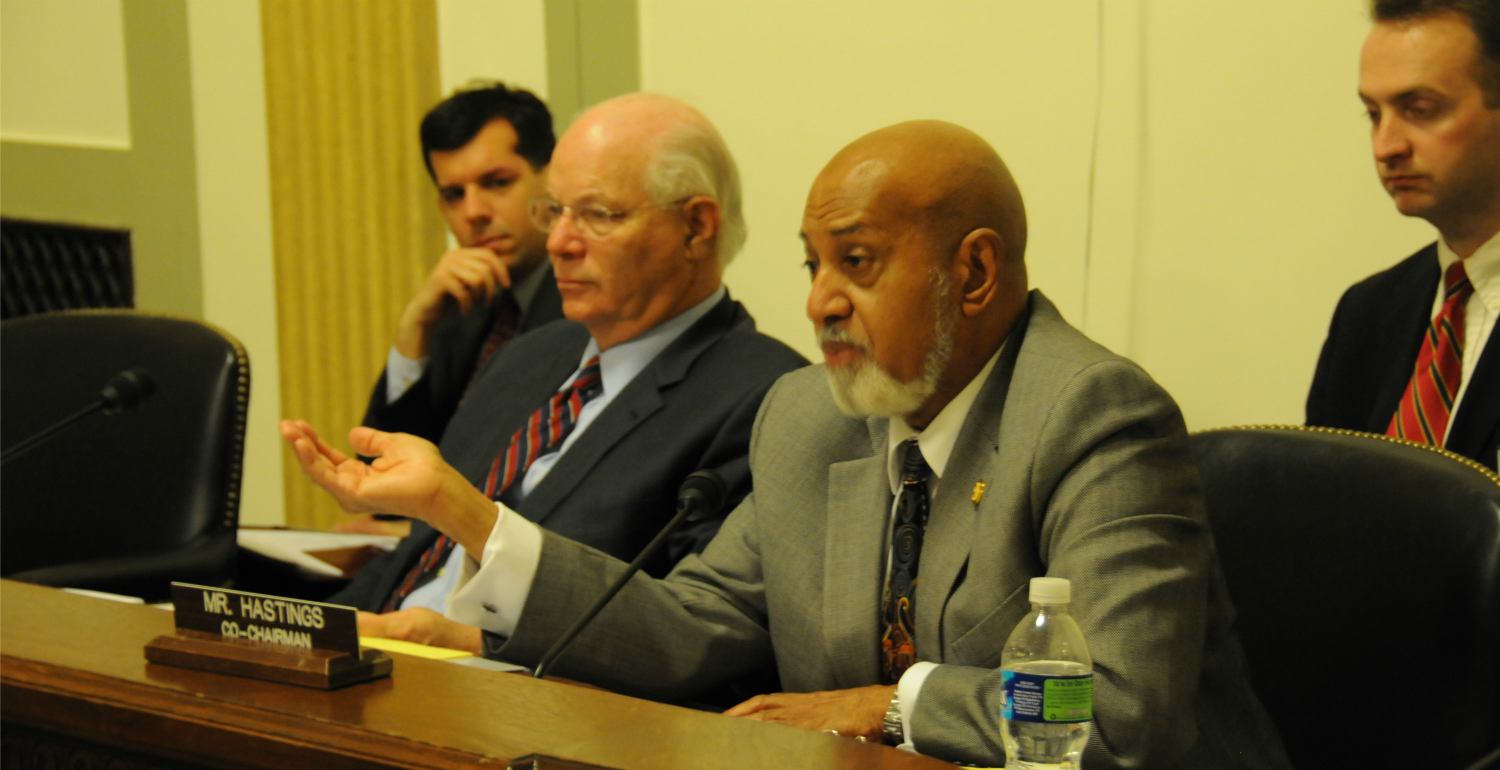2009 was a year of tremendous political change in Moldova as nearly a decade of Communist rule came to an end. Following two elections and massive street protests, Moldova’s ruling coalition, the Alliance for European Integration, still lacks the 61 votes needed in parliament to elect a new president. As the poorest country in Europe in the midst of a global economic downturn, a prolonged impasse poses serious challenges to reform and recovery in Moldova.
Members
Witnesses
H.E. Vlad Filat
Prime Minister
Republic of Moldova
Relevant Issues
Relevant Countries

Chairman Wilson and Ranking Member Cohen Condemn Rus...
Dec 05, 2024WASHINGTON—Today, U.S. Helsinki Commission Chairman Representative Joe Wilson (SC-02) and Ranking Member Representative Steve Cohen (TN-09) issued the following statement condemning Russia’s malign interference in the Romanian presidential election, the second round of which is scheduled […]

Helsinki Commission Advances Human Rights, Demands f...
Oct 19, 2023By Shannon Simrell, Senior Policy Advisor Between October 2-13, 11 Helsinki Commission staff joined approximately 1,400 representatives of OSCE participating States (pS) and civil society representatives in Warsaw, Poland in […]

Russia’s Alpine Assets: Money Laundering and S...
Jul 18, 2023Switzerland has for years been a primary destination for Russian money laundering and, since the Russian invasion of Ukraine, a weak link in Western sanctions enforcement. This Helsinki Commission hearing […]
Helsinki Commission Announces Briefing on US-Europe ...
Dec 12, 2022WASHINGTON—At a virtual kickoff event on December 13, Co-Chairman Cohen and Ranking Member Wilson launched the US-Europe Coalition on Russia Sanctions. NO SAFE HAVEN Launching the US-Europe Coalition on Russia […]
Helsinki Commission Deeply Concerned Over Latest Ele...
Jul 27, 2022WASHINGTON—Helsinki Commission Chairman Sen. Ben Cardin (MD) and Co-Chairman Rep. Steve Cohen (TN-09) today expressed deep concern about an effort by the international community’s High Representative in Bosnia to impose […]

European Energy Security Post-Russia
Jun 07, 2022Russia is weaponizing energy to prolong its unlawful invasion of Ukraine. Unfortunately, the sanctions that Europe and the United States have put in place have not been enough to curb […]
European Energy Security Focus of Upcoming Helsinki ...
Jun 02, 2022WASHINGTON—The Commission on Security and Cooperation in Europe, also known as the Helsinki Commission, today announced the following hearing: EUROPEAN ENERGY SECURITY POST-RUSSIA Tuesday, June 7, 2022 2:30 p.m. Watch […]
Co-Chairman Cohen Welcomes Conclusion of First Round...
Apr 12, 2022WASHINGTON—Following the first round of presidential elections in France on April 10, Helsinki Commission Co-Chairman Rep. Steve Cohen (TN-09) issued the following statement: “As co-chairman of the bipartisan U.S. Helsinki […]
Helsinki Commission Supports Invocation of OSCE’s Vi...
Nov 10, 2021WASHINGTON—Following the invocation of the OSCE’s Vienna Mechanism to address the mounting human rights crisis in Belarus, Helsinki Commission Chairman Sen. Ben Cardin (MD), Co-Chairman Rep. Steve Cohen (TN-09), Ranking […]
The Russian election was supposed to shore up Putin’...
Sep 25, 2021Electoral precinct 40, located in a charming historic area a few minutes’ walking distance from the Kremlin, is among the few in Moscow that can be trusted to count votes […]
Seeking Justice and Freedom in Belarus
Sep 21, 2021In 2020, mass protests against the fraudulent election of Alexander Lukashenko shook Belarus. Since then, Lukashenko and his illegitimate regime have clung to power by committing ever more serious acts […]



